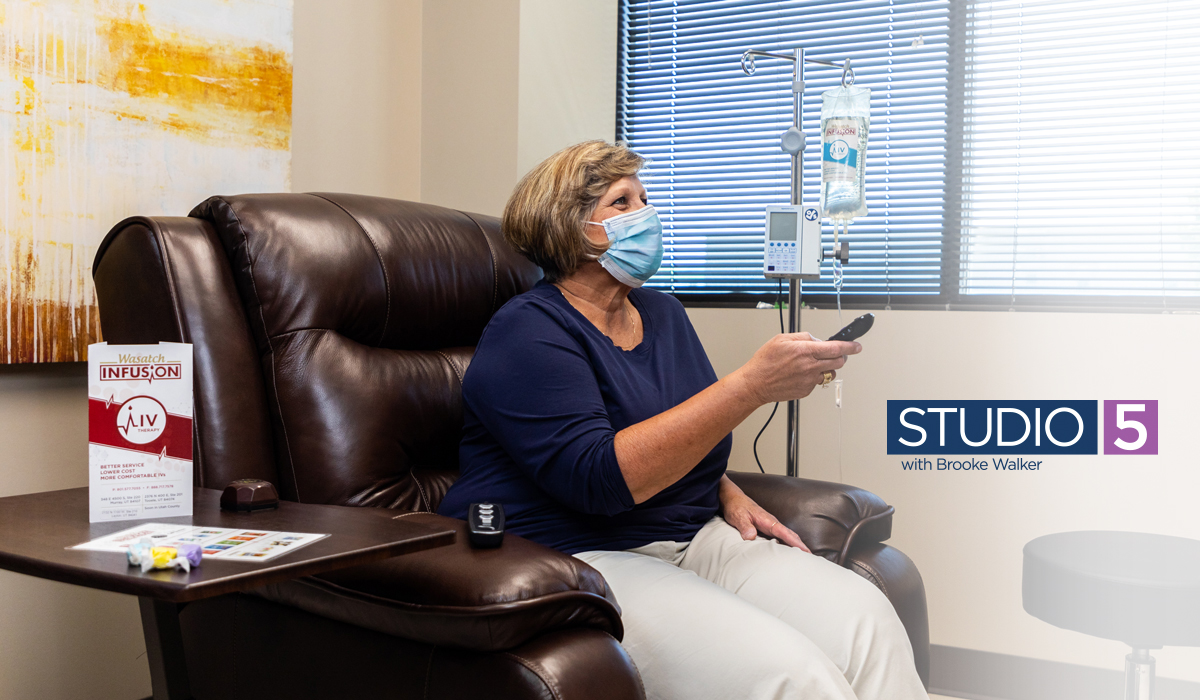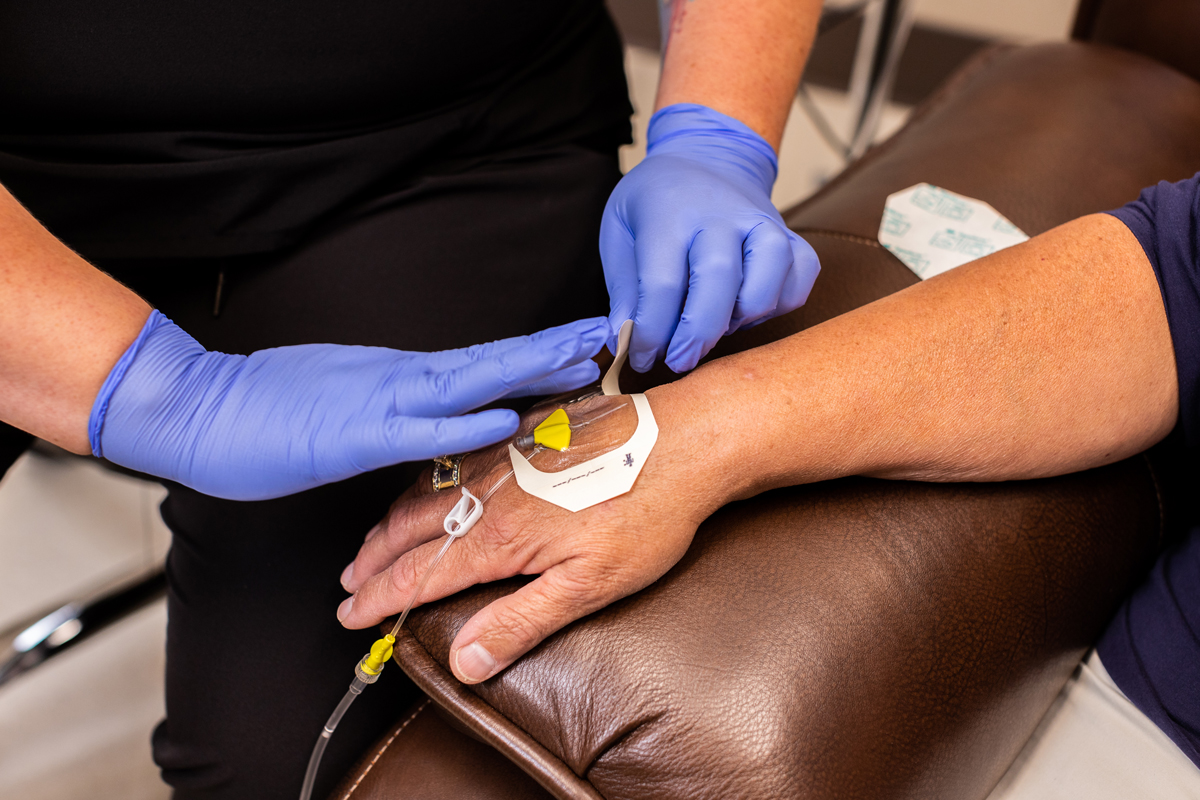Infusion centers were created for making IV infusions an easier, more accessible, and enjoyable experience. In the past, the only option for infusion therapy was a hospital. Fortunately, today, the option of a stand-alone infusion center is available, and that opportunity poses many benefits. Some of those benefits may include:
- Comfort
- Ease of scheduling
- Efficiency and accessibility
- Expertly trained infusion staff
- Cost-effectiveness
Since infusion centers are not affiliated with a hospital, they are able to provide a more comfortable environment including private suites, reclining chairs, refreshments, multiple viewing options, WiFi access and/or blankets. Patients enjoy ample space, seclusion, and comfort, not a bay of beds or chairs, surrounded by strangers with unknown illnesses.
“When you go to the ER, there are typically many sick people and you don’t know what they may have. Since my condition is auto immune, I have to be aware of that,” said Donna L., a long-time infusion center patient.
Unlike hospitals, an infusion center allows for ease of scheduling. Since they are dedicated exclusively to offering infusion therapy, every chair is available and dedicated to their IV patients. Most centers have broad operating hours, and many allow same-day appointments. They work closely with physicians and hospital staff to accommodate patients promptly.
According to Donna L., “You wait for sometimes hours to be seen at a hospital. Here [at an infusion center], you are seated in a private, sanitized room within a few minutes.”
An additional benefit of exclusive focus with an infusion center, like Wasatch Infusion, is their dedicated, expert staff. All medical staff focus solely on IV therapy, PICC, midline, and dual lumen lines, as well as catheter insertion, therapeutic phlebotomy, and port access and flushes. With this hyper-focused model, every staff member is expertly trained to treat patients. Patients can more readily and easily communicate their needs and level of comfort, while staff are able to more closely monitor one-on-one with their patients.
“An outpatient setting is so much different than a hospital. Patients don’t have anxiety because they are in a more relaxed environment where they can receive medical care without feeling like they have no control over anything that’s happening with them,” said nurse practitioner Julie Bassargh.
Probably one of the most important benefits to an infusion center is the cost of care. Not only is it more cost-effective to the patient, but it is also cost-effective for insurance companies. When you consider the 5-year trend of a 65 percent increase in commercial PMPM and 40 percent increase in Medicare PMPM, the cost is an important factor in treatment, and infusion centers are a welcome opportunity to decrease costs.

Source: Magellan RX Medical Pharmacy Trend Report 2019
An ICORE Healthcare report in 2010 noted that infusion center costs are, on average, 50 percent lower than the same treatment provided at a hospital. And according to a Metro Infusion report, the average cost of a hospital stay is $1,500 per day without medications, whereas the per-day cost of an IV center is $150 with medications.
While cost is an important aspect of determining healthcare decisions, gone are the days of limited choices when it comes to a person’s health and well-being. Hospitals may offer the same medication as an infusion center, but there are multiple benefits to receiving an IV treatment at an office-based infusion center. It’s an easy choice for patients. If comfort, ease, and cost-effectiveness are a priority, an infusion center provides all of this and more.





